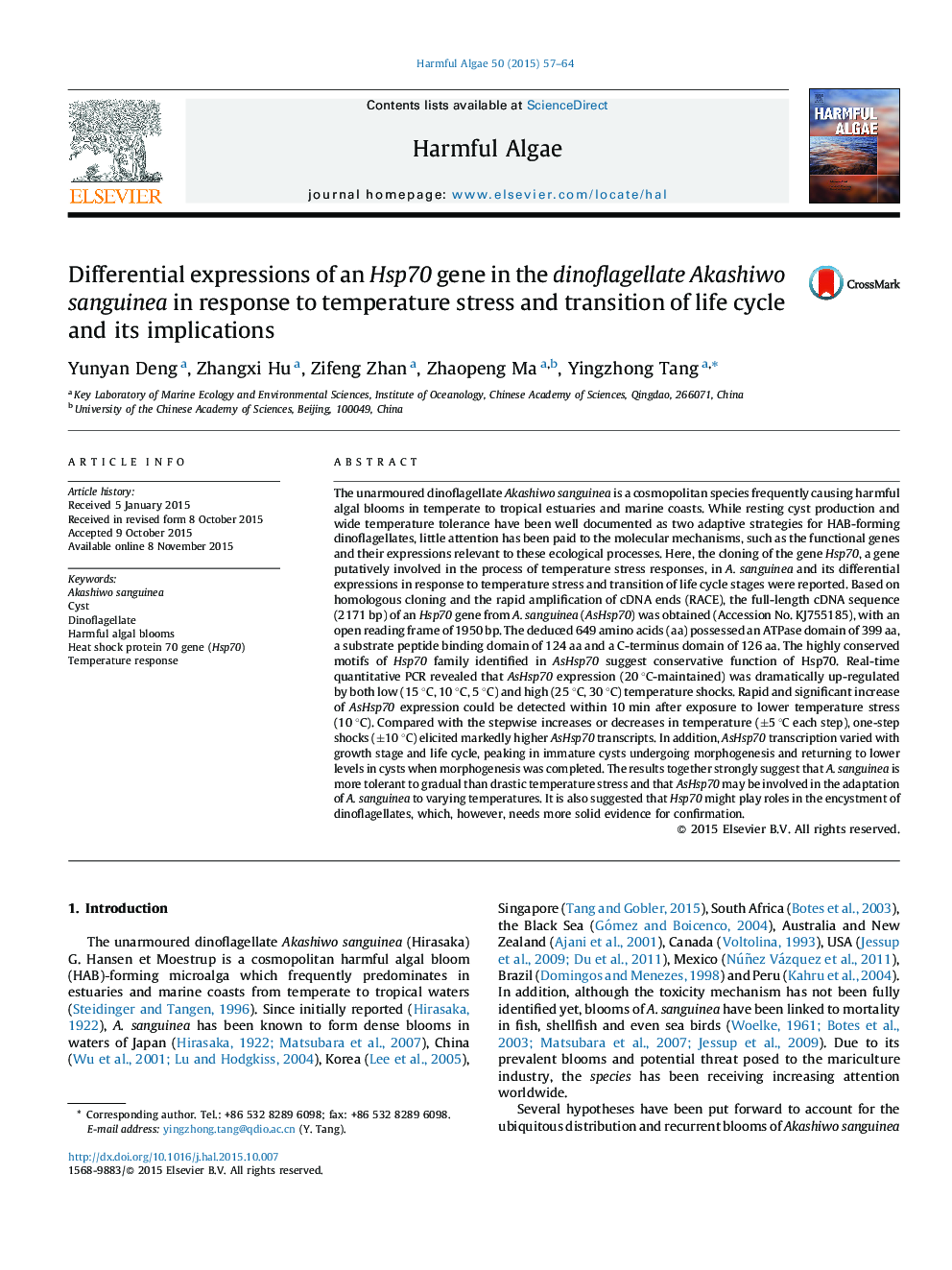| کد مقاله | کد نشریه | سال انتشار | مقاله انگلیسی | نسخه تمام متن |
|---|---|---|---|---|
| 6386160 | 1626921 | 2015 | 8 صفحه PDF | دانلود رایگان |

- The full-length sequence of an Hsp70 (AsHsp70) gene from dinoflagellate A. sanguinea was obtained.
- More dramatic temperature shocks induced higher AsHsp70 transcripts than did gradual shocks.
- AsHsp70 may be involved in the adaptation of A. sanguinea to varying temperature.
- AsHsp70 transcription peaked in immature cysts and returned to lower levels in cysts.
The unarmoured dinoflagellate Akashiwo sanguinea is a cosmopolitan species frequently causing harmful algal blooms in temperate to tropical estuaries and marine coasts. While resting cyst production and wide temperature tolerance have been well documented as two adaptive strategies for HAB-forming dinoflagellates, little attention has been paid to the molecular mechanisms, such as the functional genes and their expressions relevant to these ecological processes. Here, the cloning of the gene Hsp70, a gene putatively involved in the process of temperature stress responses, in A. sanguinea and its differential expressions in response to temperature stress and transition of life cycle stages were reported. Based on homologous cloning and the rapid amplification of cDNA ends (RACE), the full-length cDNA sequence (2171 bp) of an Hsp70 gene from A. sanguinea (AsHsp70) was obtained (Accession No. KJ755185), with an open reading frame of 1950 bp. The deduced 649 amino acids (aa) possessed an ATPase domain of 399 aa, a substrate peptide binding domain of 124 aa and a C-terminus domain of 126 aa. The highly conserved motifs of Hsp70 family identified in AsHsp70 suggest conservative function of Hsp70. Real-time quantitative PCR revealed that AsHsp70 expression (20 °C-maintained) was dramatically up-regulated by both low (15 °C, 10 °C, 5 °C) and high (25 °C, 30 °C) temperature shocks. Rapid and significant increase of AsHsp70 expression could be detected within 10 min after exposure to lower temperature stress (10 °C). Compared with the stepwise increases or decreases in temperature (±5 °C each step), one-step shocks (±10 °C) elicited markedly higher AsHsp70 transcripts. In addition, AsHsp70 transcription varied with growth stage and life cycle, peaking in immature cysts undergoing morphogenesis and returning to lower levels in cysts when morphogenesis was completed. The results together strongly suggest that A. sanguinea is more tolerant to gradual than drastic temperature stress and that AsHsp70 may be involved in the adaptation of A. sanguinea to varying temperatures. It is also suggested that Hsp70 might play roles in the encystment of dinoflagellates, which, however, needs more solid evidence for confirmation.
Journal: Harmful Algae - Volume 50, December 2015, Pages 57-64